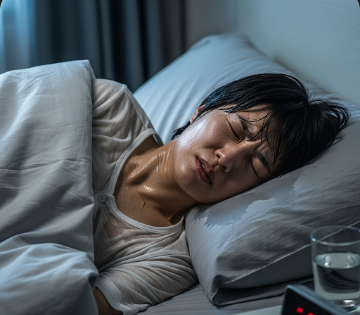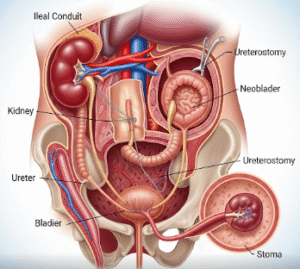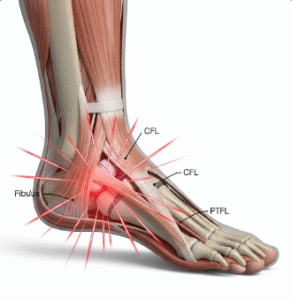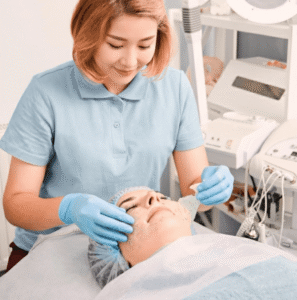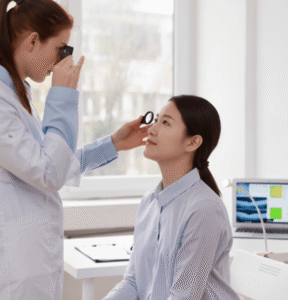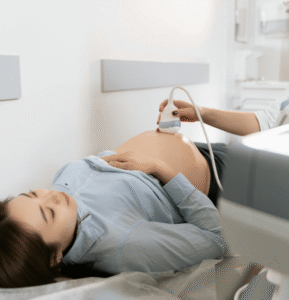Overview
Night sweats refer to episodes of excessive sweating during sleep that can soak clothing or bedding. Unlike normal perspiration caused by warm environments, night sweats are often unrelated to temperature or physical activity and may indicate underlying medical conditions.
In Korea, physicians carefully evaluate night sweats to identify potential causes, ranging from infections, hormonal imbalances, medications, to systemic diseases. Timely diagnosis is crucial to prevent complications and guide appropriate treatment.
Key Facts
➤ Night sweats are episodes of excessive sweating during sleep, not caused by heat or exercise.
➤ They can affect men, women, and children.
➤ Causes range from infections, hormonal changes, medications, and cancers to less serious conditions.
➤ Recurrent night sweats may interfere with sleep quality and daily functioning.
➤ In Korea, comprehensive diagnostic evaluations are available to determine the underlying cause.
What are Night Sweats?
Night sweats involve unusual or excessive perspiration during sleep, often leaving clothing or bed sheets drenched.
➔ Night sweats can be isolated events or recurring episodes, and may be accompanied by:
- Fever or chills
- Weight loss
- Fatigue
- Other systemic symptoms
They are a symptom rather than a disease, signaling potential health issues that require evaluation.
Symptoms Related to Night Sweats
➤ Excessive sweating during sleep, sometimes soaking pajamas or bedding.
➤ Chills or shivering accompanying sweating.
➤ Fever in cases of infection.
➤ Fatigue or disrupted sleep due to sweating episodes.
➤ Rapid heart rate in some cases.
➤ Additional symptoms depending on cause, e.g., weight loss, pain, or cough.
Causes / Possible Causes
Night sweats can result from infectious, hormonal, malignant, or medication-related factors:
Infections
➤ Tuberculosis – classic symptom is prolonged night sweats.
➤ HIV/AIDS – may cause persistent night sweating.
➤ Bacterial infections such as endocarditis.
➤ Viral infections like influenza or mononucleosis.
Hormonal Causes
➤ Menopause – due to fluctuating estrogen levels causing hot flashes.
➤ Hyperthyroidism – excessive thyroid hormone increases metabolism and sweating.
➤ Diabetes – hypoglycemia during sleep may trigger sweating.
Malignancy
➤ Lymphoma – particularly Hodgkin’s lymphoma, often presents with night sweats.
➤ Other cancers may also cause systemic symptoms including weight loss and fatigue.
Medications
➤ Antidepressants, steroids, and fever-reducing drugs may induce night sweats.
➤ Certain hypoglycemic medications in diabetics can cause nocturnal sweating.
Other Causes
➤ Anxiety or stress-related sympathetic activation.
➤ Obstructive sleep apnea leading to nighttime sweating.
➤ Idiopathic causes, where no clear reason is found.
Risk Factors
➤ Middle-aged or older women, particularly during menopause.
➤ Individuals with thyroid disorders or diabetes.
➤ Patients on certain medications such as antidepressants or hypoglycemics.
➤ People with chronic infections or immunocompromised conditions.
➤ Stress, anxiety, or sleep disturbances.
Complications
While often not serious, night sweats can lead to:
➤ Sleep disruption, fatigue, and daytime sleepiness.
➤ Dehydration in severe or frequent episodes.
➤ Delay in diagnosis of serious underlying conditions like infections or cancers.
➤ Secondary psychological effects, such as anxiety about sleep or health.
When Should I See My Doctor?
Consult a healthcare professional if:
➤ Night sweats occur frequently or worsen over time.
➤ They are accompanied by unexplained weight loss, fever, or persistent fatigue.
➤ Associated with pain, cough, or other systemic symptoms.
➤ Sweating interferes with sleep quality or daily life.
➤ You are taking medications that may be contributing and need evaluation for alternatives.
Care and Treatment
Lifestyle and Home Measures
➤ Keep the bedroom cool and well-ventilated.
➤ Use light, breathable bedding and sleepwear.
➤ Avoid spicy foods, caffeine, and alcohol before bedtime.
➤ Maintain stress management routines like meditation or relaxation exercises.
➤ Track episodes to help identify triggers.
Medical Treatments
➤ Treat underlying conditions such as infections, thyroid disorders, or hormonal imbalances.
➤ Adjust medications if they are causing sweating.
➤ Hormone therapy may be considered for menopause-related night sweats.
➤ Antipyretics or supportive therapies for infection-induced sweating.
Preventive Measures
➤ Maintain regular medical check-ups for early detection of systemic conditions.
➤ Balanced diet and hydration to prevent complications.
➤ Monitor sleep environment and habits.
➤ Manage stress and anxiety through psychological interventions if necessary.
Treatment Options in Korea
Korean healthcare provides a comprehensive approach to night sweats:
Diagnostic Services
➤ Blood tests to evaluate thyroid function, glucose levels, and infection markers.
➤ Imaging studies if malignancy is suspected (CT, PET scans).
➤ Hormonal assessments for menopause or endocrine disorders.
➤ Review of medications and lifestyle factors contributing to symptoms.
Therapies and Supportive Care
➤ Targeted treatment of underlying conditions (infection, hormone therapy, or cancer management).
➤ Symptomatic relief through cooling techniques, breathable bedding, and hydration guidance.
➤ Stress management and psychological support if anxiety or sleep disruption is present.
➤ Integrated care in hospitals and clinics, combining internal medicine, endocrinology, and sleep medicine.
➤ Follow-up to monitor treatment efficacy and symptom resolution.
✅ In summary: Night sweats are episodes of excessive sweating during sleep, often signaling underlying medical conditions ranging from hormonal imbalances, infections, medications, to malignancies. In Korea, early evaluation, accurate diagnosis, and comprehensive management can help relieve symptoms, address root causes, and improve sleep quality and overall health.

